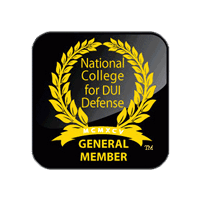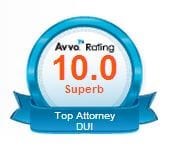DUI Blood Draw Warrants in North Carolina DWI Cases 
Under NC DUI law, police can get a warrant to draw your blood if you refuse breath testing, even if it is against your will. This obscure law usually comes as a surprise to persons arrested for DWI and then asked to give a breath sample under the implied consent rules. Almost everyone has heard that you should not “blow” as you are only giving the State more evidence to convict you. As a result, many individuals charged with DUI refuse even after they are told they will lose their driver’s license for one (1) year. While police inform them that they can get a warrant and then take you to a hospital for blood draw, many persons fail to understand or appreciate what is being said as they are under tremendous stress and anxiety after having been arrested, handcuffed, and put in the back of a patrol car. Consequently, they still refuse and start a process that can have negative consequences in both the criminal and DMV side of their DWI case.
It is difficult to appreciate how your “rights” under criminal laws are essentially rendered meaningless under DMV rules regarding driving “privileges” in DWI cases. In any other arrest, criminal defendants are permitted to refuse any thing and every thing. All they have to say is “I refuse” and/or “I want a lawyer.” At that point, all police activity is required to stop. If the police persist and elicit additional evidence, that evidence can be suppressed. Not so when arrested and charged with an “implied consent” driving offense. By simply operating a vehicle on North Carolina roads, you have already “given your consent” to be tested for alcohol or drugs. If you refuse breath testing (or if the machine “times out” or is otherwise not working properly), the officer can then fill out a form and request a Magistrate Judge to sign a DUI blood draw warrant. It would interesting to learn how many, if any, such requests for warrants are ever denied. Nevertheless, once signed, the State of North Carolina can then transport you to a health care facility and direct a qualified lab tech or nurse to forcibly put a needle in your arm and draw your blood. For a discussion on warrantless blood draws in DUI cases, please click the highlighted link to that page on our website.
Breathalyzer Refusal and Effect on Driving Privileges and DWI Criminal Case
On the criminal side of your DWI case, the prosecution will ask for a jury instruction at trial indicating the a “refusal” will be depicted as an “indication of guilt” whether you actually declined or the machine “timed out” while you were trying in earnest. After trying civil and criminal cases for over 25 years, I am still not convinced that juries really consider this instruction. If you refuse, the jury will know that this is your right under the 5th Amendment. If the breath testing machine simply is not registering a “proper sample,” the jury will conclude the “instrument” (police preferred description) is not working and will effectively disregard this proclamation by the court. Of course, police predictably and emphatically stress that this machine never fails. In fact, they usually testify that “the machine runs a self diagnostic program and will tell you if it is not working properly.” Such description usually draws confused and skeptical reactions by jury members.
The effect on your ability to drive is much more stark. You can and should appeal the DMV suspension. That appeal must be filed within ten (10) days from arrest. This is a very quick deadline, and failure to file timely is fatal. In cases of true willful refusal, you are simply delaying the inevitable, unless the officer fails to appear at the scheduled hearing. However, most hearing officers will continue a case at least once if the officer is unable to appear due to other official duties. Once this issue is resolved, your license (if you are a NC resident) or driving privilege (if you are from another State) will be revoked for a full year. This license revocation is separate and apart from any additional punishment you may receive if you lose your criminal DWI case. And, even if you ultimately prevail in your criminal case, the DMV issues will still proceed. This reality is very difficult to understand and appreciate but derives from the “rights” versus “privileges” analysis outlined above. 
